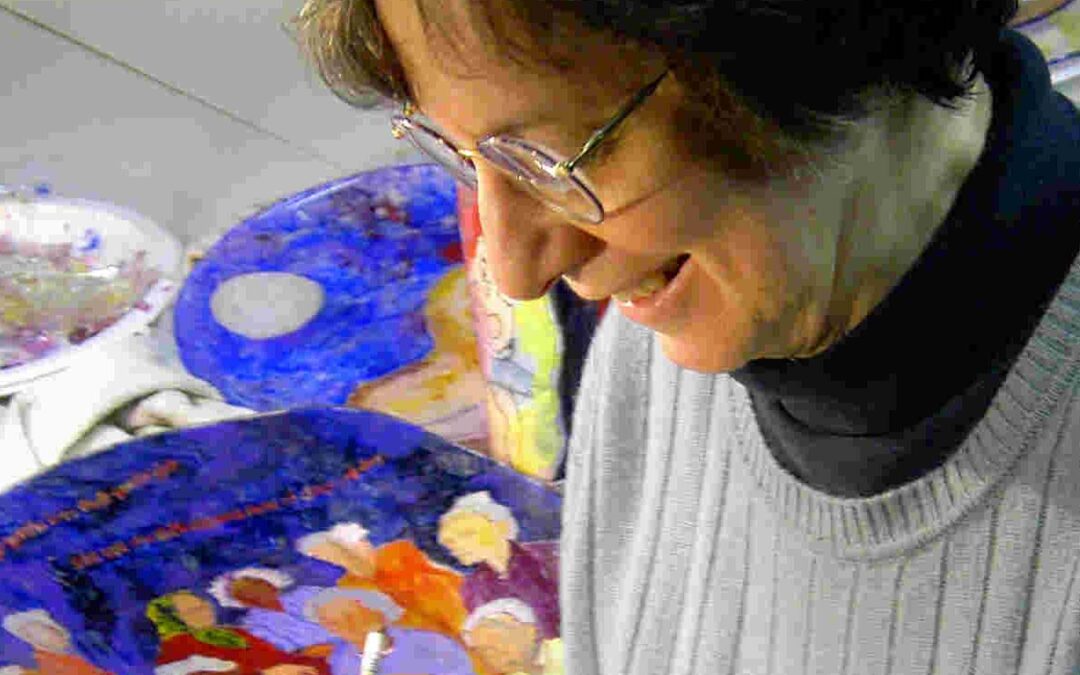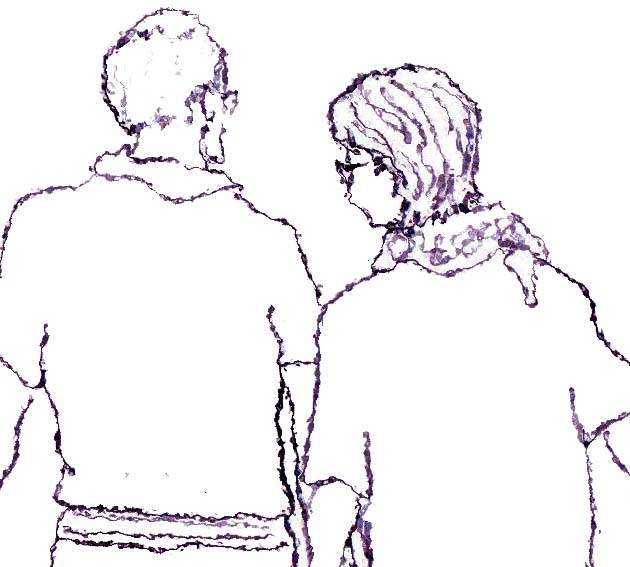
Jul 13, 2021
For the last four months I’ve been sending you blogs on Retirement Strategies, based in part on my book Serious About Retiring, my coursework and research, my own experiences, and those of my friends and clients – both past and present. There have been many issues that were discussed.
As I’ve reread these blogs, I’ve noticed that the topics fall into several categories or themes. I am listing them here for you so that you can explore or re-explore them if you wish. All of these blogs are stored on my website www.seriousaboutretiring.com.
Theme: Transition into retirement.
#3. Getting unstuck. Some people get stuck in initiating retirement; others when the transition has not worked out very well. Are you stuck in your retirement transition?
#4. Clarity. One of Yogi Berra’s famous quotes is, “When you come to a fork in the road, take it.” It will be helpful for you to know where you’ll be going. Where are you in your lists of retirement possibilities?
#5. Decisions. How do you make the right decisions – as you transition into retirement – so that you won’t regret them as you look back? Your decisions – about what you do, where you live, whom you spend your time with, how you maintain or improve your health – will depend on your own values, experiences, skills, relationships, and resources. How will you make your decisions about your retirement life?
Theme: Planning for retirement.
#7. Planning. Retirement planning is about money and activities so that you have a high-quality retirement life where you explore, grow and contribute. What can you do to improve the quality of your retirement activities?
#14. Financial Legacy. Where will your money and material possessions go after you’re gone? Are your estate planning documents and retirement plan beneficiaries set up to do what you want them to do?
#15. Personal Legacy. How do you want to be remembered for your actions? What can you give of yourself to expand and enrich the lives of others?
Theme: Activities in retirement.
#1. Replacing work. Work provides more than an earned income and benefits – colleagues, structure of your time, achievement, and identity. Do you have some ideas for replacing important features of your work when you retire?
#2. Time left. Starting at around age 50 we begin to think not only how old we are, but how much time we have left. How much time do you think you have left? How do you plan to use it?
#8. Impact. Many retirees lead inspiring lives. How can you get involved to have an impact on the lives of others?
Theme: Health in retirement.
#9. Exercise. Exercise or die? You know that you should choose exercise. How can you motivate yourself to get the exercise you need?
#10. Stimulating Your Brain. It’s been known for a long time now that your brain behaves in some ways like a muscle – use it or lose it. What activities do you want to do more of to have a stimulating retirement?
#11. Managing Diseases. As you grow older, your chances of developing a serious disease increase. Some of these diseases are preventable; most are manageable. When was the last time that you worked with your doctor or other healthcare professional on your health?
#13. The Arts. Having an artistic venture improves health and the quality of life in retirement. What artistic venture would you like to participate in when you have more time and freedom to pursue it?
Theme: Relationships in retirement.
#6. Connections. The opposite of connected is lonely, which is no fun, plus it’s dangerous to your physical and mental health. How do you want to connect with others in your retirement life?
#12. Your Partner. If you have a life partner, retirement will definitely affect your relationship – the relationship will get better or worse, and it’s up to you how this turns out. What are some of the issues that you will need to work out with your life partner about how you’ll use your time in retirement?
I will continue to write and post additional blogs on Retirement Strategies. Are there other topics or themes that you would like me to address in this series?

Jul 6, 2021
As you age and proceed into and through retirement, you may think about how you want to be remembered after you’re gone. Two of the specific questions you might ask yourself are: “what do I want to be known for” and “while I’m alive, how will I make a difference.”
Many people see their children and grandchildren as their personal legacy. What’s more important – having them or raising them properly? Have you encouraged them to be honorable people with good morals who give to others? What will they remember about you? What stories will they tell?
Presumably, you will want to be remembered positively by your family, friends, and community. Here are some tough questions to ask yourself:
What kind of person have you been?
- When you’ve interacted with family, friends, and strangers, have you treated them with kindness, respect, support, even love?
- Have you been a role model by doing great things and then teaching other people how to do them?
- Have you deepened your family relationships by preparing a family history, journal, photo album, or ethical will?
How have you given to others?
- Have you helped, inspired, and changed the lives of others?
- Have you created something of value and then given it to or shared it with others?
- Have you cultivated generosity by giving money or stuff to others, even to a beggar?
- Have you volunteered, especially using skills that you’re good at?
- If someone is lost (figuratively or literally), have you helped them find their way? Do you give them directions, advice, and encouragement?
- Have you given the ultimate gift – listening with your heart?
These actions are aspirational. You would have to be a saint to do all of them all of the time. But being a good person has its own rewards – for you during your lifetime and certainly for others whose lives you will have affected and improved.
What can you give of yourself to expand and enrich the lives of others?

Jun 29, 2021
Where will your money and material possessions go after you’re gone? Most people leave nearly everything to their spouse, and if no longer alive to their children. But some want a portion of their estate to go to charities that support the causes and values that are important to them. How can you do this?
The financial part of a legacy has complicated rules. Your money passes to your surviving beneficiaries through a combination of beneficiary designations on insurance and retirement plans, your will or trust, and the intestate (succession) laws of your state of residence upon your death if you have no will.
Planning can get particularly challenging if your assets themselves are complicated (a business, real estate), if your beneficiaries’ health is complicated (care for a dependent, drug dependency), or if your family situation is complicated (multiple marriages, very different situations for the different beneficiaries.) When you add in wanting to minimize taxes and having preferences as to when money is to be released to different beneficiaries, you can see that there is both an art and science in figuring this all out.
It’s frequently critical to work with a variety of professionals in your estate planning. Your estate planning attorney can put together a plan and then construct the appropriate legal documents. Many financial planners are familiar with a variety of planning approaches and can help with the process. They will need to compile your list of assets to give to the attorney. Insurance agents sometimes get involved because life insurance might be an approach you decide to use. In my experience it’s important to work with very high caliber professionals in each of the appropriate areas.
Until a couple of years ago I was a financial planner. Here is an estate planning strategy that I frequently recommended to my clients. Let’s assume that there is some cause (charity) that is important to you. While you’re alive, you make annual contributions to support their efforts. Those contributions will stop upon your death. You want them to also inherit some of your assets.
Let’s assume your estate totals $500,000 including a $100,000 retirement plan and you have two children whom you want to inherit equally. Each child would then receive $250,000 including half the retirement plan ($50,000 each.) If your children would be in the 20% marginal tax bracket when they inherit, they would each owe 20% of the $50,000 or $10,000 in income taxes. Their net after-tax inheritance would be $240,000.
What if you changed only the beneficiary of your retirement plan to your favorite charity? Then the charity would receive all $100,000 free and clear. It wouldn’t have to pay any income tax on it (it’s a nonprofit.) This is an efficient way to leave a legacy to your favorite cause. You could set it up so that the charity received and used the lump sum all at once, or you could leave the money to their foundation to stretch out the time period for its use.
Here’s the critical question – how would leaving some money to charity affect your children? If each child received $200,000 instead of $240,000, would it make a critical difference in their lives? If not, where would you like your $100,000 to go to make the world a better place? In any case, review your situation and goals with your professional advisors to find strategies that are appropriate for you.
What would you like your legacy to be? Are your estate planning documents and retirement plan beneficiaries set up to do what you want them to do?

Jun 22, 2021
When you think about retirement activities, you may look forward to consuming the arts, including going to museums, plays, dance performances, listening to music, and reading.
There is another level of participation in the arts – you can produce them. You can paint, act, dance, make music, or write. There are profound health benefits to the latter.
Dr. Eugene Cohen did the research through the National Institutes of Health. He evaluated the health of two groups of seniors aged 65 – 90, both of which were healthy and active. One group (artists) began to produce art at least weekly under the direction of a professional artist/teacher. The other group (non-artists) did not.
Over the space of a couple of years Dr. Cohen and his colleagues measured the health of both groups. Here is what they found:
- The artists ended up with better overall physical health than the non-artists. They needed fewer doctor visits and less medications. Their immune and hormonal systems were stronger. They fell less often.
- The artists also ended up with better overall mental health than the non-artists. They had less stress, loneliness, depression, and dementia.
- The artists were involved in more activities.
The researchers believe that participation in the arts helped in many ways. It demonstrated to the seniors that they could accomplish something that they previously had not done. It gave them more of a sense of control over their lives.
Participating in the arts increased their interactions with others. Painters were in painting classes. Actors acted with others. Musicians sang in choirs or played in orchestras or bands. And writers were in writing groups. All of them had teachers. And the artistic activities were on-going.
I can report that being an older artist is challenging and fun. I’m learning to play the cello, and I particularly enjoy playing duets with my teacher and others. My wife launched her art career at age 60 and teaches art to seniors.
What artistic venture would you like to participate in when you have more time and freedom to pursue it?

Jun 15, 2021
If you have a life partner, retirement will definitely affect your relationship – the relationship will get better or worse, and it’s up to you how this turns out. Although the incidence of divorce among retirees is low, the rate is rising, and it even has a name – “gray divorce.”
Retirement is a big deal, in part because of the emotional energy you invest in this transition. Like most people you have high expectations for what you’ll do with your extra time.
You and your partner might retire at different times. And you may have different hopes and plans for retirement.
This means that there may be many issues for the two of you to talk through so that you can resolve differences. Of course, you don’t have to do all of your activities together. In fact, you may want to give each other some space so that you can both act on your dreams when they differ from each other.
Communication is the key to working things out. My wife, who is my life partner, and I generally eat at least two meals together every day during retirement without interference of phone or TV. This gives us a chance to share what we each have on our agendas for the day and to exchange how things are going. We use this time as an opportunity to problem-solve, share ideas, and support each other in our separate- and together-activities. We make time for longer discussions if and when we need them.
It’s clear that we both place a high priority on our relationship and will go out of out way to be there for each other when we’re needed.
When we talk over a challenging issue with each other, we find that it helps to tell each other what we need from the conversation. Do we want ideas to solve a problem, or do we want helpful support? When we’re at our best, we’ll ask each other what we expect from the conversation.
When should you start these conversations with your life partner? Sooner is probably better.
What are some of the issues that you will need to work out with your life partner about how you’ll use your time in retirement?

Jun 8, 2021
As you grow older, your chances of developing a serious disease increase. Three fourths of all adults 65 and over have at least one chronic condition. Some of these diseases are preventable; most are manageable. But you need to know about them before you can manage them.
A friend of mine in his 80’s was having trouble walking. He fell frequently. He was convinced that it was a balance problem, which is regulated by his inner ear. But his inner ears were fine. It was a mystery. Eventually, he was diagnosed with neuropathy, the death of nerves in the feet. He couldn’t feel touching the ground, so he fell.
In his situation, his neuropathy was a result of an advanced case of uncontrolled diabetes, which he didn’t know he had. Why? He hadn’t had a routine physical in five years. He was convinced that he had no problems and therefore didn’t need to see a doctor.
In a routine physical examination, your physician listens to your heart, measures your blood pressure, and may then talk with you about your health and lifestyle. S/He may collect blood and urine samples and hand them to a technician who analyzes the fluids for a variety of metabolites. The levels of the metabolites give hints about your internal health. If you catch problems early, you have a chance to manage them before they get too serious. You can have much better outcomes.
Several years ago, my physician noticed that my iron levels were low. The solution for me was just taking a few iron pills every day. It cured the problem, at least for now.
We discovered that I had diabetes 20 years ago, I changed my diet, exercise, and gradually some of my medications so that it is still under control to this day. I miss eating some sugary foods, but I’ve not yet developed side effects from the disease.
When was the last time that you worked with your doctor on your health?






